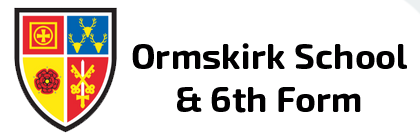Computer Science
Computer Science Subject Staff
| Mr Goodier | Head of Computer Science and IT |
| Mrs Blackhurst | Teacher of Computer Science Assistant Headteacher - Head of Sixth Form |
| Miss Gelling | Teacher of Computer Science and IT |
| Mr Calcutt | Teacher of Computer Science and Business Studies |
Subject Overview
Our intent is to promote a curiosity for the technology that is fundamental to the increasingly digital world we live in. Our curriculum equips students with essential digital skills for their future, allowing them to be confident IT users who see technology as an opportunity and not a threat. Our curriculum is designed to allow our students to appreciate how technology can affect them as individuals as well as the wider world around them. We will empower our learners to know how to make use of technology effectively, responsibly and safely. All students will have the foundation skills that are essential and are transferable to every area of life - problem solving, critical thinking, analysis and communication skills. Those who take these subjects as an option will face challenges and will need to be resilient in their approach. They will become citizens who are even more digitally literate, taking with them qualifications that are highly recognised.
Key Stage 3
Students will learn computing concepts and skills through a range of software programs where skills can be transferred and used in a variety of other subject disciplines. Students are encouraged to progress and develop their knowledge and understanding in a variety of topics including hardware, software, memory and storage, moral, legal and environmental concerns, computational logic, algorithms, programming techniques, data representation, website design, digital image design and a programming project.
Key Stage 4
Students have the opportunity to elect to study OCR GCSE Computer Science and/or WJEC Level 1/2 in IT. No matter which option classes are taught in mixed ability groups and all assessment is finalised at the end of their two-year course.
The Computer Science course is a GCSE grade 1-9, assessed through 2 exams worth 50% each taken at the end of year 11. Students will study the theory topics of ‘Boolean Logic’, ‘System Architecture’, ‘Memory and Storage’, ‘Algorithms’, ‘Programming Fundamentals’, ‘Producing Robust Programs’ , ‘Programming Languages and Integrated Environments’, ‘Computer Networks and Protocols’, ‘Network Security’, ‘System Software’ and ‘Ethical, Legal, Cultural and Environmental Concerns’. As part of their learning students will be confident in variety of skills in programming using the Python programming language.
The IT course is a vocational course graded with a Pass, Merit or Distinction and Level 1 or Level 2. It is comprised of 2 units of work, one coursework component and one examined component taken at the end of year 11. Students will undertake their coursework component (Unit 2 ‘ICT in Context’) first, this is worth 60% of their overall mark. In the context of their provided coursework brief students will use software that will allow them to create and edit digital images, manipulate data in a database and spreadsheet and merge data between different software applications. This unit is followed by their examined component (Unit 1 IT in Society) which will cover the key theory elements including ‘How IT can be used to fulfil the needs of organisations and individuals’, ‘How data and information is used and transferred’ and ‘The legal, moral, ethical, cultural and environmental impacts of IT and the need for cybersecurity’.
Key Stage 5
Students will have the option to continue their studies with a traditional or vocational pathway. Students who took Computer Science at Key Stage 4 can elect to study OCR A Level Computer Science, or for those that took IT at Key Stage 4 we offer the Pearson BTEC Level 3 National Extended Certificate in Information Technology.
The A Level Computer Science course will be assessed through two exams (worth 40% each) sat at the end of year 13 and an independent programming project (worth 20%) submitted in year 13. Students will receive a grade A*-E. For their exams students will study ‘The characteristics of contemporary processors, input, output and storage devices’, ‘Software and software development’, ‘Exchanging data’, ‘Data types, data structures and algorithms’, ‘Legal, moral, cultural and ethical issues’, ‘Elements of computational thinking’, ‘Elements of computational thinking’, ‘Problem solving and programming’ and ‘Algorithms’. For their independent project students will need to apply key concepts to analyse a problem, design a solution, develop a solution and test and evaluate their final product.
The BTEC Level 3 National Extended Certificate in Information Technology course will be assessed through four units of work graded at Pass, Merit or Distinction. Two will be coursework units and two will be examined. In the first coursework unit students will study ‘Using Social Media in Business’ where they will learn how social media can be used to promote a business and design their own social media campaign using appropriate platforms for a chosen business. Students second coursework topic, ‘Website Development’ involves learning and applying web development skills to create, test and evaluate a website. In the first of their examined components ‘Creating Systems to manage information’ students will learn how to create, develop, test and evaluate a relational computer database. This will be assessed through a practical exam taken on computers. Finally, students will sit their written exam on ‘Information Technology Systems’, for which they will have studied topics including networks, hardware and software, legislation, accessibility and online services.

